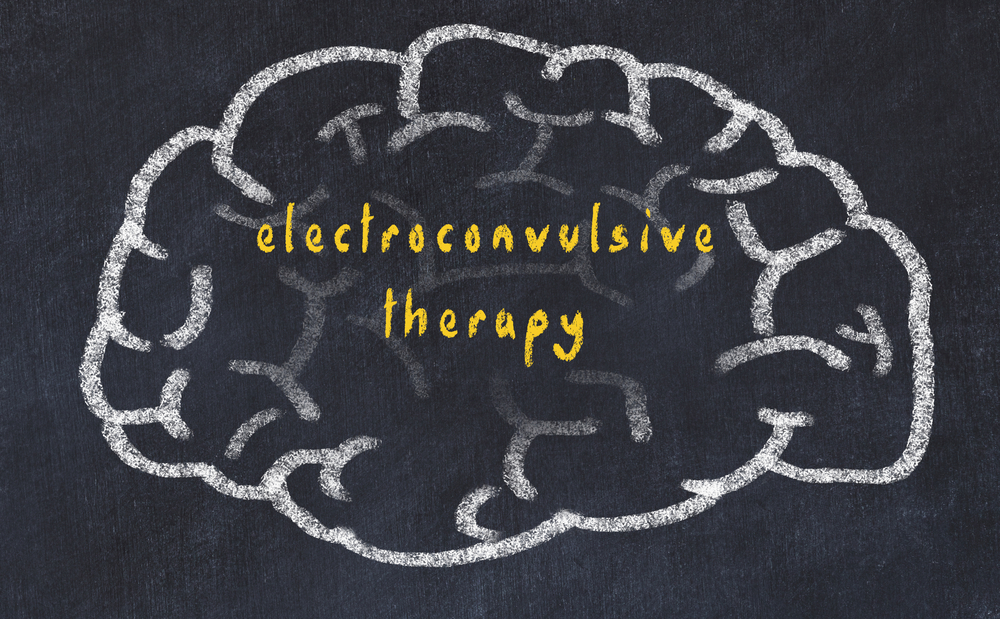A new study challenges the notion that electroconvulsive therapy (ECT) can prevent suicide. The researchers found that after receiving ECT, patients were still almost 45 times more likely to die by suicide than people in the general population.
“The 2-year suicide risk of patients having received treatment with ECT is highly elevated compared with sex- and age-matched individuals from the general population,” the researchers write.
However, they add, this extremely high rate of suicide after a treatment that is supposedly very effective for suicide prevention is “to be expected considering the severity of the mental disorders treated with ECT.” Despite this conclusion, the researchers did not actually obtain any data about the severity of the mental health symptoms of the patients in the current study.
Another important finding was that the risk of dying by suicide was especially elevated for people who were already suicidal—the target demographic for ECT. The researchers note that people who had a history of suicide attempts or self-harm were more than four times as likely to die by suicide than those who received ECT without that history. This indicates that ECT does not have a special suicide prevention effect for the people most at risk, either.
ECT is a controversial procedure that involves electrocuting the brain to induce seizures deliberately. There is no consensus on how this might reduce mental health problems. The procedure results in adverse cognitive effects that can last for months or even years, including persistent memory loss in over a third of patients.
 Is This a Good Comparison?
Is This a Good Comparison?
A limitation of the current study is that it compared people with mental health problems who received ECT to the general population rather than to people with similar mental health problems who did not receive ECT. However, other studies have made this comparison.
At least one recent observational study found that those who received ECT were less likely to die by suicide than those with similar mental health problems who did not receive ECT. Conversely, however, a large study of over 70,000 veterans found that those who received ECT were no better off than those with similar mental health problems who did not receive ECT.
Researchers such as John Read have noted that only 11 placebo-controlled studies of ECT’s efficacy have ever been conducted, and all took place prior to 1985. Most were small and riddled with biased research methods (for instance, none of the studies were even double-blind). Moreover, only 4 of the 11 studies even found that ECT was better than placebo (sham treatment).
In a press release, Read stated, “This body of research is of the lowest quality of any I have seen in my 40-year career.” Read has been interviewed for Mad in America about this research.
In one recent study, Read and other researchers, including renowned Harvard researcher Irving Kirsch, concluded that “there is no evidence that ECT is effective for its target demographic—older women, or its target diagnostic group—severely depressed people, or for suicidal people, people who have unsuccessfully tried other treatments first, involuntary patients, or adolescents.”
A Deeper Look at the Current Study
The current study was conducted by Anders Spanggård, Christopher Rohde, and Søren Dinesen Østergaard at Aarhus University in Denmark. It was published in Acta Psychiatrica Scandinavica.
The study included all of the patients that initiated ECT between 2006 and 2016 in Denmark (11,780 people). For comparison, the researchers matched each subject by sex and age with ten people from the general population (117,800 people).
1.4% of the people who received ECT died by suicide within two years. Compared to the general population, the hazard rate ratio was 44.48. This means that after receiving ECT, patients were still almost 45 times more likely to die by suicide than people of the same age and sex in the general population.
In a post-hoc analysis, the researchers identified further risk factors for those who died by suicide:
“Those who are male, have obtained medium-/long-term higher education, or have a history of substance use disorder or intentional self-harm/suicide attempt, are at particularly elevated risk of suicide following ECT,” they write.
In fact, they found that a whopping 17% of men who were middle-aged, depressed, suicidal, and had moderate or high education ended up dying by suicide after receiving ECT.
“It is rare to see suicide rates of that magnitude in the literature,” the researchers write, “and these findings obviously call for action.”
What action? The researchers write that more patients should be prescribed lithium—one of the most dangerous substances used to treat mental health problems and one for which evidence of efficacy is lacking, according to a recent meta-analysis. In their study, the researchers actually found no statistically significant association between taking lithium (or any other psychopharmacological drug) and reduction of suicide risk. This is despite the fact that 11.2% of the patients in this sample were taking lithium in addition to receiving ECT.
In conclusion, the researchers write:
“While all patients receiving and having received ECT should be monitored closely for suicidal ideation, and other manifestations of relapse, extra careful risk assessment and follow-up of patients with the characteristics mentioned above may reduce the number of suicides.”
****
Spanggård, A., Rohde, C., & Østergaard, S. (2023). Risk factors for suicide among patients having received treatment with electroconvulsive therapy: A nationwide study of 11,780 patients. Acta Psychiatrica Scandinavica. Published online on February 6, 2023. DOI: 10.1111/acps.13536 (Link)















This poorly designed study is worthless because, as Peter Simons points out, it compared people with mental health problems who received ECT to the general population rather than to people with similar mental health problems who did not receive ECT. This is not particularly surprising because so many studies, especially in psychiatry, are so poorly conceived.
It’s possible that ECT may help some people. But the procedure, which has been abused and has horrible adverse effects, has not been proven to be effective.
Report comment
“A new study challenges the notion that electroconvulsive therapy (ECT) can prevent suicide.”
Out of curiosity, why would anyone in their right mind think, “electrocuting the brain to induce seizures deliberately” would benefit anyone?
“electrocuting the brain to induce seizures deliberately” is evil. So, of course, maltreating a person in such a manner is not going to prevent suicides.
Report comment
Once again, the authors bypass the obvious conclusion that using “ECT” as a “treatment” for severely depressed people should be discontinued, as it does not work and can potentially do tremendous harm to the “patients” exposed to it.
Report comment
Ernest Hemingway!!!
Report comment